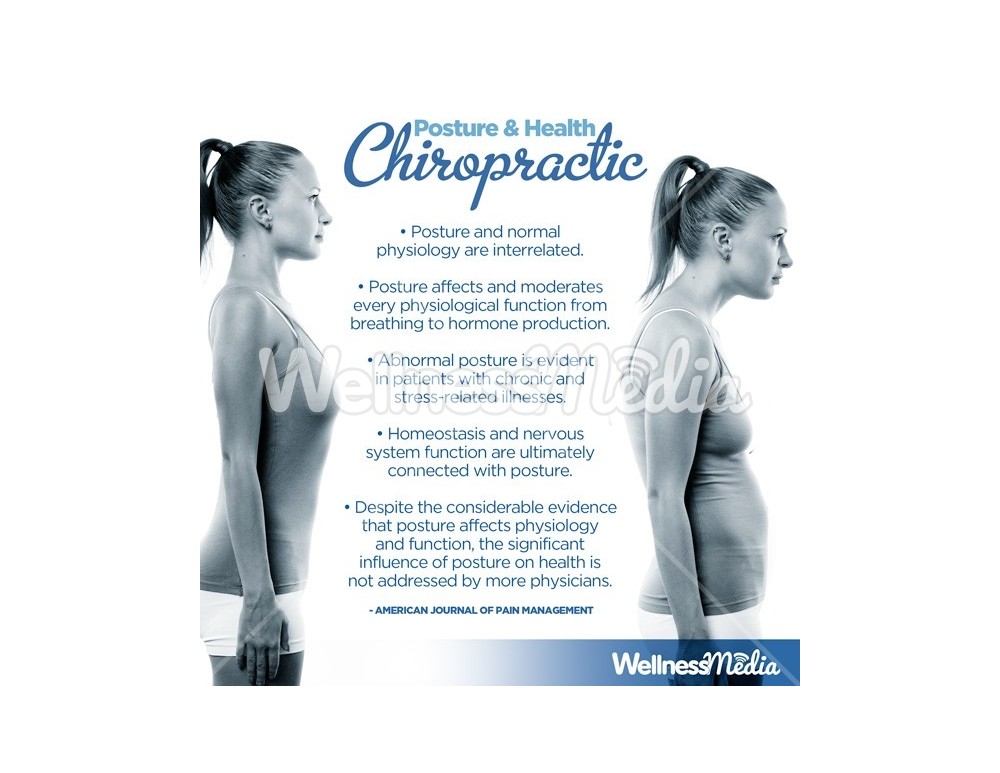When it involves handling your pain in the back, the food choices you make can significantly influence just how you really feel daily. Imagine having https://www.kwwl.com/sports/local-chiropractor-says-athletes-use-number-of-treatments-to-maintain-physical-wellness/article_e34ed471-9522-5075-9e60-4f05f53fed7f.html to reduce your discomfort merely by readjusting what you eat. By recognizing the function of nutrition in back pain monitoring and recognizing which foods to include or avoid, you can take proactive actions towards a healthier and extra comfortable way of life. The link in between nourishment and back wellness is more extensive than you might recognize-- let's discover just how specific foods can either calm or intensify your neck and back pain.
Relevance of Nourishment in Back Pain
Nourishment plays an essential duty in managing pain in the back. Your diet can considerably impact swelling degrees and total pain degrees in your back. Eating a well balanced diet regimen abundant in nutrients like vitamins D and K, calcium, magnesium, and omega-3 fats can help in reducing swelling and enhance bones, which are necessary for back health.
Additionally, keeping a healthy weight through proper nourishment can alleviate anxiety on your spine, reducing the risk of back pain.
In how long does chiropractic adjustment take , certain nutrients like antioxidants found in fruits and vegetables can aid deal with oxidative anxiety and promote healing in the body, including the back muscles and spine.
On the other hand, consuming too much amounts of refined foods, sugary beverages, and harmful fats can add to swelling and weight gain, worsening pain in the back.
Foods to Consume for Back Health
To sustain a healthy back, integrating nutrient-rich foods into your daily meals is vital. Consisting of foods high in anti-oxidants like berries, spinach, and kale can help in reducing swelling in your back, relieving discomfort and discomfort. Omega-3 fatty acids located in fatty fish such as salmon and mackerel have anti-inflammatory residential properties that can profit your back wellness.
In addition, taking in nuts and seeds like almonds, walnuts, and chia seeds provides necessary nutrients like magnesium and vitamin E, which sustain muscle function and reduce oxidative stress. Integrating lean healthy proteins such as chicken, turkey, and tofu can aid in muscle repair and upkeep, promoting a solid back.
Do not fail to remember to include dairy or fortified plant-based alternatives for calcium to support bone health and wellness. Lastly, moisten with plenty of water to maintain your back discs moistened and operating optimally. By consisting of these nutrient-dense foods in your diet regimen, you can nurture your back and assistance general spinal health.
Foods to Avoid for Pain In The Back
Select avoiding processed foods high in added sugars and trans fats when seeking relief from back pain. These types of foods can contribute to swelling in the body, which might exacerbate neck and back pain. Say no to sugary treats like candy, pastries, and sweet drinks, in addition to convenience food products like hamburgers, french fries, and fried chicken that are usually packed with trans fats.
In addition, stay away from foods having high degrees of polished carbohydrates, such as white bread, pasta, and pastries, as they can increase blood sugar level levels and potentially aggravate inflammation in the body.
It's likewise smart to limit your consumption of foods high in saturated fats, like red meat and full-fat milk items, as they can add to inflammation. Processed foods like delicatessens meats, chips, and packaged treats are often high in hydrogenated fats and should be eaten in moderation.
Final thought
Finally, focusing on your diet regimen and making smart food choices can have a substantial impact on managing neck and back pain. By integrating nutrient-rich foods like berries, fatty fish, nuts, and lean healthy proteins, and preventing refined and sweet items, you can help reduce inflammation and support generally back wellness. Bear in mind, what you eat plays a crucial role in exactly how you really feel, so make sure to prioritize your nutrition for a healthier back.
